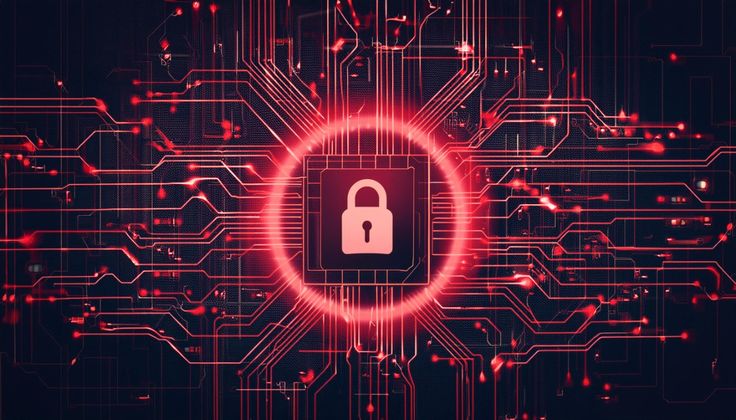The Role of Ethical Hacking in Modern Cybersecurity: Safeguarding the Digital Frontier

Introduction
In this globally networked environment where major aspects of daily life, including banking, business, governance, defence, etc. are managed by a digital system, security is not a luxury but a mandate. In recent years, ethical hacking has been established to be one of the most useful methods when it comes to enhancing security structures against threats from hackers. So now, what is ethical hacking, and why is it considered important? Hence, this article aims at explaining ethical hacking in today’s cybersecurity environment, its techniques in practice, and its impact.
What is the Ethical Hacking
Ethical hacking can be defined as the legal attempt to penetrate a system, a network, or an application with the view of identifying loose screws. As much as an ethical hacker is a hacker, he or she has set legal and professional standards to work under. Their aim is to identify vulnerabilities before they are exploited by the hackers. These others are also referred to as ‘White Hat’ hackers.
Why Ethical Hacking is Crucial in Cybersecurity
- Proactive Defence Mechanism
Official ethical hackers avoid cyber threats since they know beforehand the weak spots. They work like hackers, recreating real-life cyber attacks and then showing organisations how to fix any vulnerabilities before they are exploited.
- Compliance with Regulations
There are many sectors that need a penetration test and vulnerability scan on a regular basis to adhere to compliances such as GDPR, PCI DSS, or HIPAA. Ethical hacking keeps organisations informed on these regulations.
- Protection of Sensitive Data
Information leakages can cost much money and compromise the reputation of an organisation. Ethical hacking protects such material as personal particulars of customers, the company’s secrets, patents, and other proprietary information.
- Mitigating Evolving Threats
This created a shift in the nature of threats where cyber threats are continuously changing. Whereas ethical hackers learn with these changes, preparing organisations against fresh methods of attack.
Types of Ethical Hacking
- Network Hacking
Is mainly concerned with detecting vulnerabilities in the network, including firewalls, routers, and communication protocols.
- Web Application Hacking
Specific focuses on weak areas in websites or web applications, among them SQL injection, cross-site scripting (XSS), and broken authentication.
- Wireless Network Hacking
Scans wireless networks looking for vulnerabilities in wireless security, weak wireless encryption, or unauthorised wireless points.
- Social Engineering
Takes advantage of human emotions to hack into a system. This is used by ethical hackers to challenge how aware an organisation and its employees are concerning cybersecurity.
Techniques Used by the Ethical Hackers
- Reconnaissance
Identifying the weak points in the organisational communication procedure using the open-source tools or conducting research.
- Scanning
To subclassify the targets, one is actively seeking for devices, open ports and vulnerabilities using Nmap, Nessus, etc.
- Exploitation
A process of emulating assaults to make the most of the realised weaknesses. For instance, to verify if lax passwords can result in unauthorized access.
- Reporting
Ethical hackers give extended information about findings, implications of every problem, and ways of solving them.
Benefits of Ethical Hacking
- Strengthening of organisational security
System analysis performs vulnerability scans on a regular basis, making security systems responsive and current.
- Boosts Customer Confidence
There is a lot of credit to be gained for businesses that focus on and develop excellent cybersecurity measures.
- Saves Costs
Ethical hacking investment on the other hand avoids covering the future financial and reputational repercussions of data violations.
Skills required to become a Ethical Hacker
- Strong Networking Knowledge
Recognizing common protocols and settings and security measures of the system.
- Programming Skills
Knowledgeable in written languages such as Python, Java, C++ to write a script that works to your advantage.
- The Knowledge of Operating System
The kind of knowledge being considered here is Operating System Knowledge. Knowledge of working in Windows Linux and macOS.
- Experience with Hacking Tools
Interoperability with tools such as Metasploit, burp suite, Wireshark and others.
- Critical thinking and problem-solving
These skills are the two related views of the project. An analytical approach to create unique solutions for security problems.
Ethical Concerns and Legal Aspects
Ethical hacking practices work under the legal rules and regulations of the state and country. This is a serious offence no matter the intent one has, it is wise not to intrude on another’s rug. Ethical hackers must seek permission from the system owners before performing the tests and must toe the ethical line of conduct.
The Future of Ethical Hacking
Looking at the future, given the growth of the use of AI, block chain and IoT, ethical hacking will be more important. As more and more new kinds of cyber threats appear, ethical hackers must learn how to evolve to new levels of thinking.
Conclusion
It is a profession that entails responsibility; it’s actually defending the cyber world. The task of ethical hackers therefore is imperative in ensuring the safety of every server we have online. In both corporate and individual practice, ethical hacking should now be adopted as the best way to stay protected given the rising incidences of cyberattacks.

